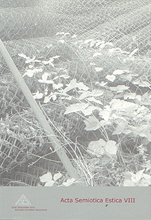Tõlkekriitika oskuskeel ja tõlkimise mõistmine Vikerkaare arvustuste näitel
Terminology and the concept of translation in translation criticism
Author(s): Maarja LäänesaarSubject(s): Semiotics / Semiology
Published by: Eesti Semiootika Selts
Keywords: translation criticism; terminology; conceptual metaphors; translation norms; translator’s invisibility; tõlkekriitika; oskuskeel ja terminoloogia; kontseptuaalsed metafoorid; tõlkimine ja normid; tõlkija nähtamatus
Summary/Abstract: The role and percentage of translations in Estonian culture is considerably larger than in the Anglo-American world, therefore it is crucial to analyse the methods, possibilities and actual practices for understanding and describing translations adapted to our situation. As translation criticism supposedly both prescribes and describes the translation norms of a society (according to Toury 1995), the study of explicit and implicit statements on translation in translation reviews is a good starting point for understanding the visibility and role of translations in Estonia. The current state of Estonian translation criticism (relying on the author’s analysis of book reviews published from 2000 to 2009 in literary magazine “Vikerkaar”) is looked at from two aspects. Firstly the amount of terminological language usage in translation criticism (aka the part of reviews that deals with translation either explicitly or implicitly), the possibility for an accurate description is discussed. The terminology used for scientific discourse in Translation Studies is context-dependent and largely built on loan words that function poorly in terms of connotative understanding. In the absence of a definitive dictionary the scientific discourse cannot be adopted easily, forcing the critics to turn to figurative language use. Secondly, there is the issue of conceptualising the translations as adaptations, accurate copies or mirror images, thus different practices for stressing or hiding the role of the translator are described. In a book review for a journal, it is useless to expect a methodological, overtly explicit and strictly scientific translation analysis, especially if the metalanguage lacks clarity and if there are no strict norms for reviewing a translated book. The figuratively expressed subjective views however carry an understanding of translation that can and needs to be made explicit.
Journal: Acta Semiotica Estica
- Issue Year: 2011
- Issue No: 8
- Page Range: 107-124
- Page Count: 18
- Language: Estonian

